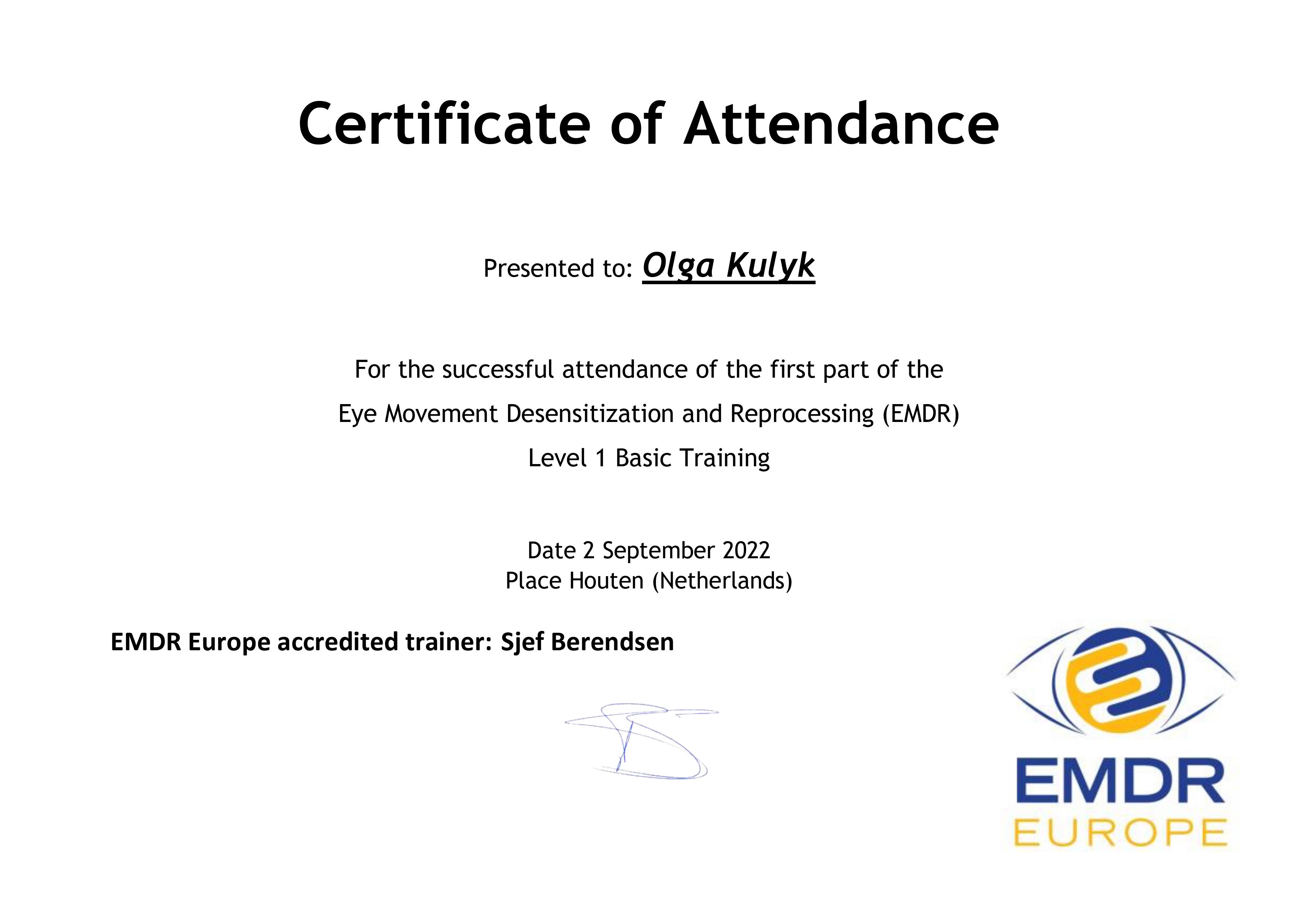Client's rights and obligations in therapy
Before you start working with a therapist, read the main rules of the psychotherapy contract. It will help you learn more about your rights and avoid misunderstandings.
A therapeutic relationship is a professional relationship.
- The therapist-client relationship is professional, and its primary purpose is to support the client in his change.
- The therapist is responsible for the organisation of the therapeutic space, its reliability, and confidentiality. The therapist is responsible for the quality of their professional services. The therapist acts in the client's interests and considers them a top priority.
- The therapist is responsible for maintaining professional boundaries and acting under professional ethics. The therapist does not provide any other services to the client, except consulting, and does not receive any services from the client.
- The therapist does not communicate with the client outside the therapy sessions (except when discussing the schedule). The therapist does not start a friendship, work, or romantic relationship with a client during therapy and for several years after its ending.
- Both therapist and client agree not to engage in extraneous activities during the session, not look at phones, or be distracted by messages or calls.
- It is helpful for the client to get involved as much as possible in the exercises and the discussion. At the same time, the client can interrupt the therapist, not answer any questions, or refuse the activity.
Don't make big decisions impacted by strong feelings during therapy.
- You may experience intense anger, irritation, sadness, helplessness, or guilt in therapy. The intensity of the experience can push you to various decisions and actions, but more often than not, such steps are premature or wrong. Do not make critical decisions based on the wave of emotions that have arisen during therapy.
- The therapist is responsible for maintaining mindfulness during the session and communicating his observations, opinions, and hypotheses to the client. At the same time, the client is responsible for the conclusions, decisions, and actions that the client takes based on what was said.
Difficulties in therapy are often a natural part of the process.
- The counsellor cannot be fully responsible for each client's experience or guarantee that the therapy will not be associated with difficult experiences and unpleasant emotions. Working with a therapist can have good results for people who continue to attend therapy despite complicated feelings.
- Your sense of your progress is valuable information for the therapy process. If you are unhappy with the way your work is progressing, first of all, discuss it with your therapist. Complexity or a sense of deadlock can indicate hidden opportunities, inaccurately formulated objectives, or a poorly chosen strategy.
Never drink alcohol before a session.
- The client is forbidden to come to counselling in alcoholic intoxication or under the influence of drugs or strong sedatives, except when the physician prescribes the constant intake of sedatives. Therapy in an altered state of consciousness is not safe for the client.
- Caffeine, nicotine, or nootropics are not prohibited during therapy since they do not lead to an altered state of consciousness.
Confidentiality is an essential part of counselling.
- The therapist does not have the right to disclose your identity to anyone and under any circumstances (except in situations prescribed by law: for example, if it is reliably known that you are in mortal danger).
- When a therapist takes supervision *, your real name is not used, and the circumstances of your situation are often changed so that you cannot be recognized. (* Supervision is the analysis of psychotherapeutic practice cases in a professional circle of therapists - in a group or individually.)
- You have all the right to use a fake name when working with a therapist.
- The client may refuse to answer specific questions of the therapist but is obliged to provide him with truthful information about his psychiatric diagnoses, chemical addictions, and attempts at suicide if any of these occurred within the last five years.
- Neither the therapist nor the client has the right to video or audio record the session without informing in advance and without obtaining the other party's consent.
- During the consultation, the therapist organises the space so no one can accidentally overhear what is being said. The client agrees to do the same. If someone on the client side can hear the session, the client should immediately communicate it.
Sessions are usually held once a week.
- Most often, sessions occur once a week at a time agreed upon by the counselor and the client. Meetings can occur more frequently if necessary.
- The therapist assigns a specific time to the client and doesn't occupy it with other clients unless the client cancels the appointment.
- The session (meeting) lasts 60 minutes.
- Changes in payment, time, frequency of meetings, and work format are negotiated separately.
- If you have a question about the therapy process that is not directly related to the schedule and payment, wait for the next consultation and ask your therapist.
- If you are in an acute crisis, write to the therapist and arrange for an additional session.
Please, cancel your session at least one day before the start.
- The client tries to attend sessions and be on time. If the client is late, the session end time does not shift. (For example, if a client is late for a one-hour session scheduled for 9 am, it will still end at 10 am regardless of the late time.)
- You can cancel a session a day before the appointed time or earlier.
- If you notify your therapist about your session cancellation less than 24 hours before the start, you'll be charged the total cost of the session.
- To cancel or reschedule a session or make an additional appointment, use the messages inside the Treatfield platform. Please, do not use phone calls or other messengers.
- If you miss a session due to force majeure (e.g., a car accident), you are not required to pay for the missed appointment. Such cases are resolved individually.
The therapist can change the consultation price but must notify at least one month before the change.
- The client must pay for consultations on time at a price indicated on the Treatfield platform. The next session is paid before its start time, and the funds are held by the platform and are finally withdrawn after the session has taken place.
- If your financial situation changes dramatically, please discuss it with your therapist. In some cases, the price may be temporarily reduced.
- The therapist can increase the cost of his consultations but must communicate it at least one month in advance so that you can discuss new terms.
You can end therapy when you see fit.
- As a rule, therapy ends with the mutual consent of the therapist and the client. Nevertheless, the client can terminate the therapy on his initiative without additional conditions.
- The therapist may suggest one or more wrap-up sessions. The wrap-up meetings are extremely useful from the point of view of the therapeutic process, but the client has the right to refuse.
- The confidentiality rule applies not only during therapy but also after its end.
- Typically, a spontaneous desire to end therapy immediately indicates complex emotions related to change and is often part of the normal psychotherapy process. Discuss your concerns with the therapist before making a decision.
If you have any doubts, we are ready to help.
- Discuss the situation directly with your therapist if you believe the therapist violated professional ethics. If the conflict is not settled on this, feel free to contact us at [email protected]
You agree to the rules mentioned above by starting counselling with a therapist. If you have any questions, ask your therapist or write us via [email protected]


-treatfield-1628852399-4084.jpg)
-treatfield-1628852420-3142.jpg)
-treatfield-1628852443-5138.jpg)
-treatfield-1628852460-4245.jpg)
-treatfield-1628852486-4477.jpg)
-treatfield-1628852506-2043.jpg)
-treatfield-1628852534-3337.jpg)
-treatfield-1628852548-4341.jpg)



